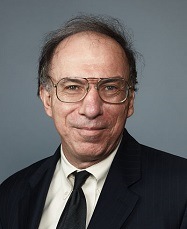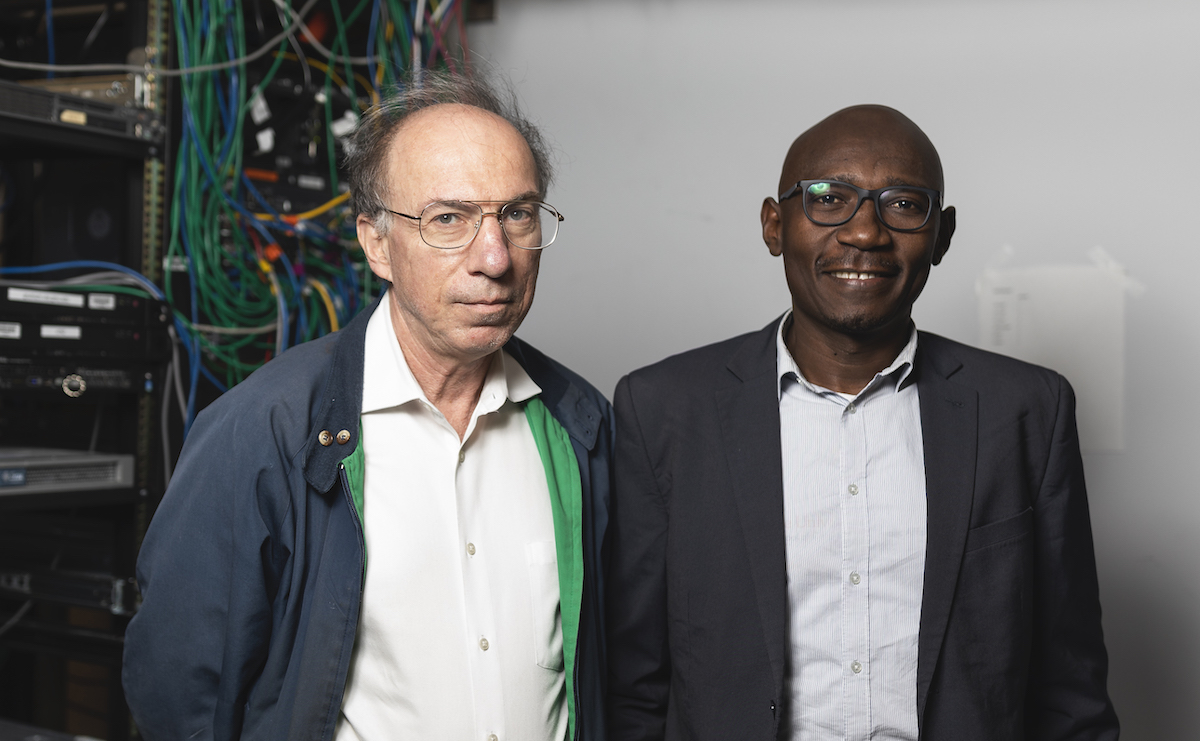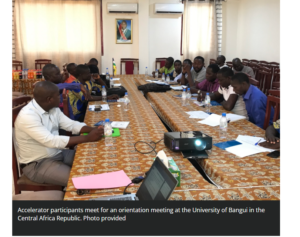Meet the Tech Exec: Amazon Cloud Security Assurance & Careers Event
Featuring Paul Hong and Kevin Donohue, AWS Cloud Assurance
Wednesday, April 12
2:00 p.m. – 4:00 p.m.
Johnson Center Cinema at George Mason University’s Fairfax Campus
Meet with business leaders from Amazon Web Services and learn about the field of Cloud Security Assurance and careers at Amazon Web Services from Paul Hong and Kevin Donahue, AWS.
Please RSVP: https://MasonAmazonCareerNetworkingApril12.eventbrite.com
Paul Hong, CISSP, CPA, Security Assurance Training and Education Lead
Paul develops and delivers cloud security and compliance trainings for regulated industries, including the US government. Paul’s work also includes enabling public sector and regulated industry adoption of the AWS Cloud. Prior to joining AWS, Paul spent his career as an IT security professional working directly with Fortune 500 companies auditing or consulting on IT process, security, and risk projects. Paul is a CISSP, CEH, and CPA, and holds a Masters of Accounting Information Systems and a Bachelors of Business Administration from James Madison University, Virginia.
Kevin Donohue, CISSP, Senior Customer Enablement Manager, Global Regulatory Operations, AWS Security
Kevin has been with AWS since 2019 and is currently a senior manager in the Security Assurance org. He leads security and compliance initiatives for various government and commercial certifications and helps customers understand the shared responsibility model. He holds CISSP, AWS Cloud Practitioner and Solutions Architect Associate certifications. Before joining AWS, Kevin worked in the commercial cybersecurity practice at PwC and prior to that, the U.S. State Department. Originally from New Jersey, Kevin now lives with his wife and daughter in Alexandria, VA.
More information about the Johnson Center Cinema.
For more information, please contact: jauffret@gmu.edu or cbatchel@gmu.edu.
This event is hosted by Mason’s College of Engineering and Computing‘s Center for Assurance Research & Engineering (CARE), the Institute for Digital InnovAtion (IDIA) and School of Business.
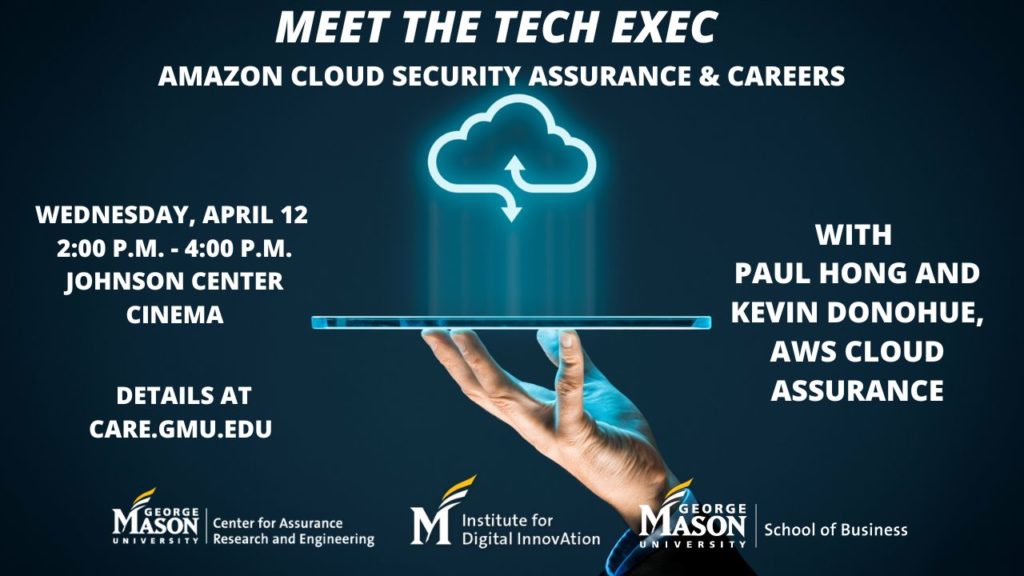


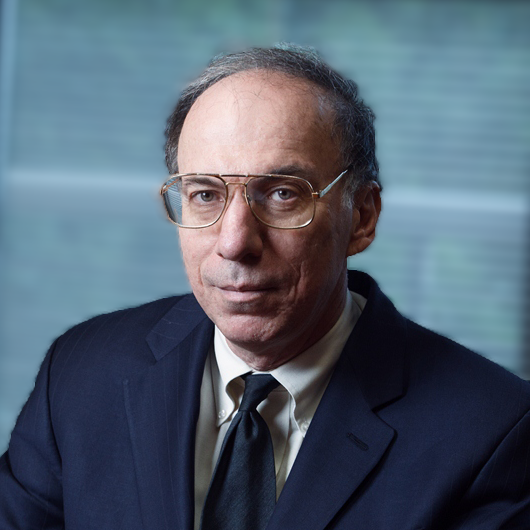
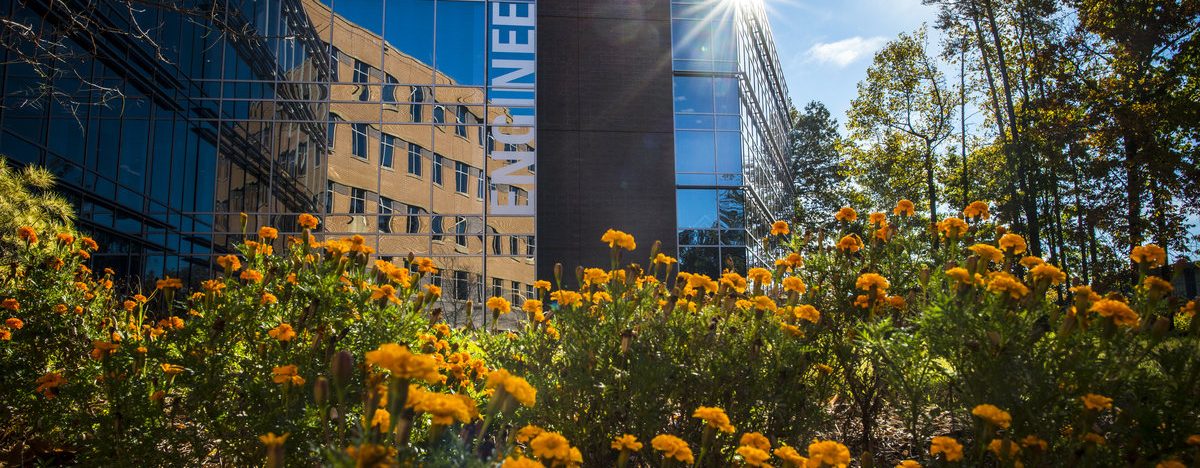



 Please join us 11/7. More info here:
Please join us 11/7. More info here: 

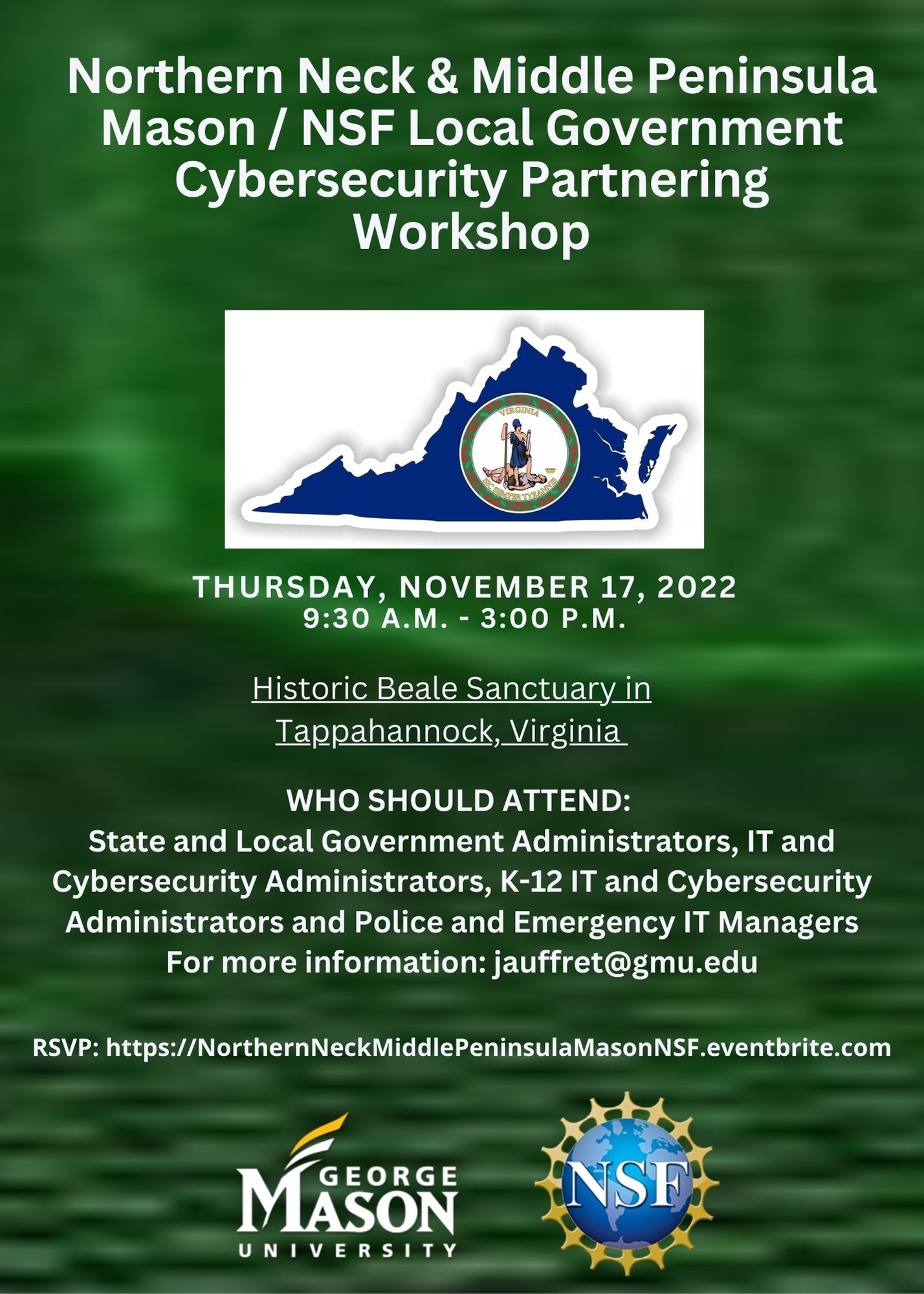 Northern Neck & Middle Peninsula – Mason & NSF Local Government Cybersecurity Partnering Workshop at the Historic Beale Sanctuary in Tappahannock, Virginia
Northern Neck & Middle Peninsula – Mason & NSF Local Government Cybersecurity Partnering Workshop at the Historic Beale Sanctuary in Tappahannock, Virginia 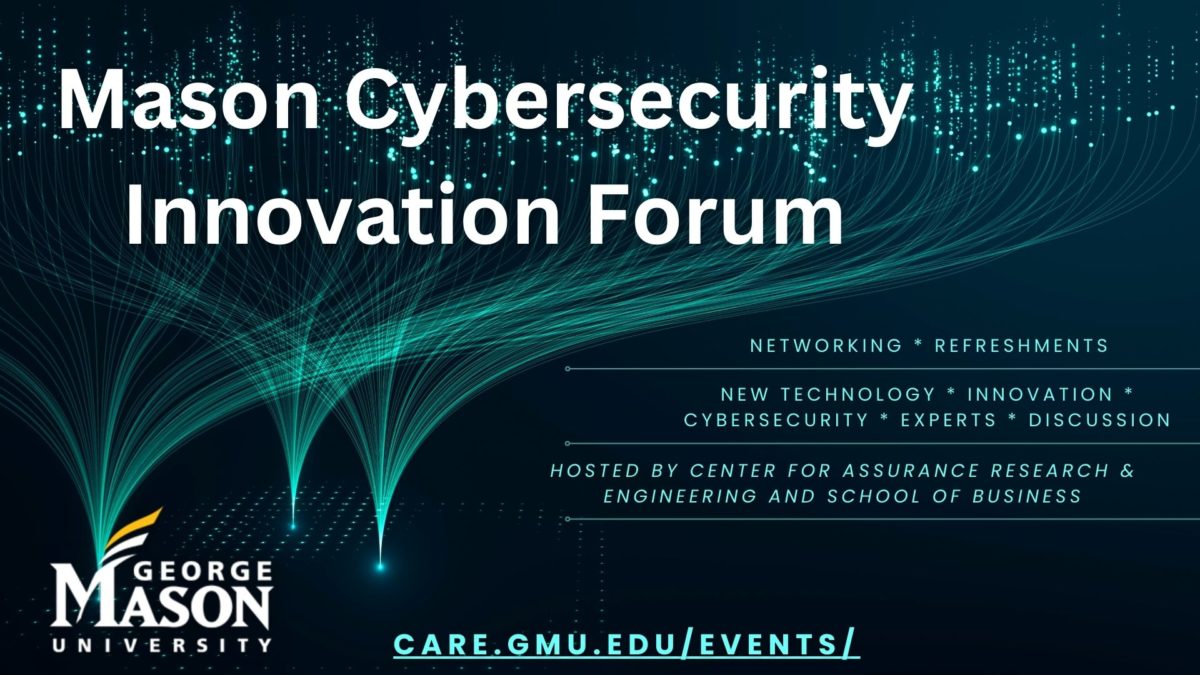
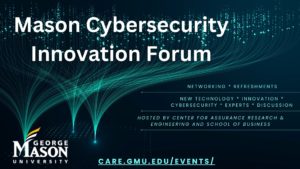

 Please join us for the George Mason University Cybersecurity Innovation Forum on April 20, 2022 from 7-9pm at the Country Club of Fairfax. The Forum will consist of a series of 15-20 minute case study presentations by cybersecurity experts and technology innovators followed by a Q&A. The focus of the events is on cybersecurity innovation including innovation rationale and motivation, technology, metrics, and lessons learned.
Please join us for the George Mason University Cybersecurity Innovation Forum on April 20, 2022 from 7-9pm at the Country Club of Fairfax. The Forum will consist of a series of 15-20 minute case study presentations by cybersecurity experts and technology innovators followed by a Q&A. The focus of the events is on cybersecurity innovation including innovation rationale and motivation, technology, metrics, and lessons learned.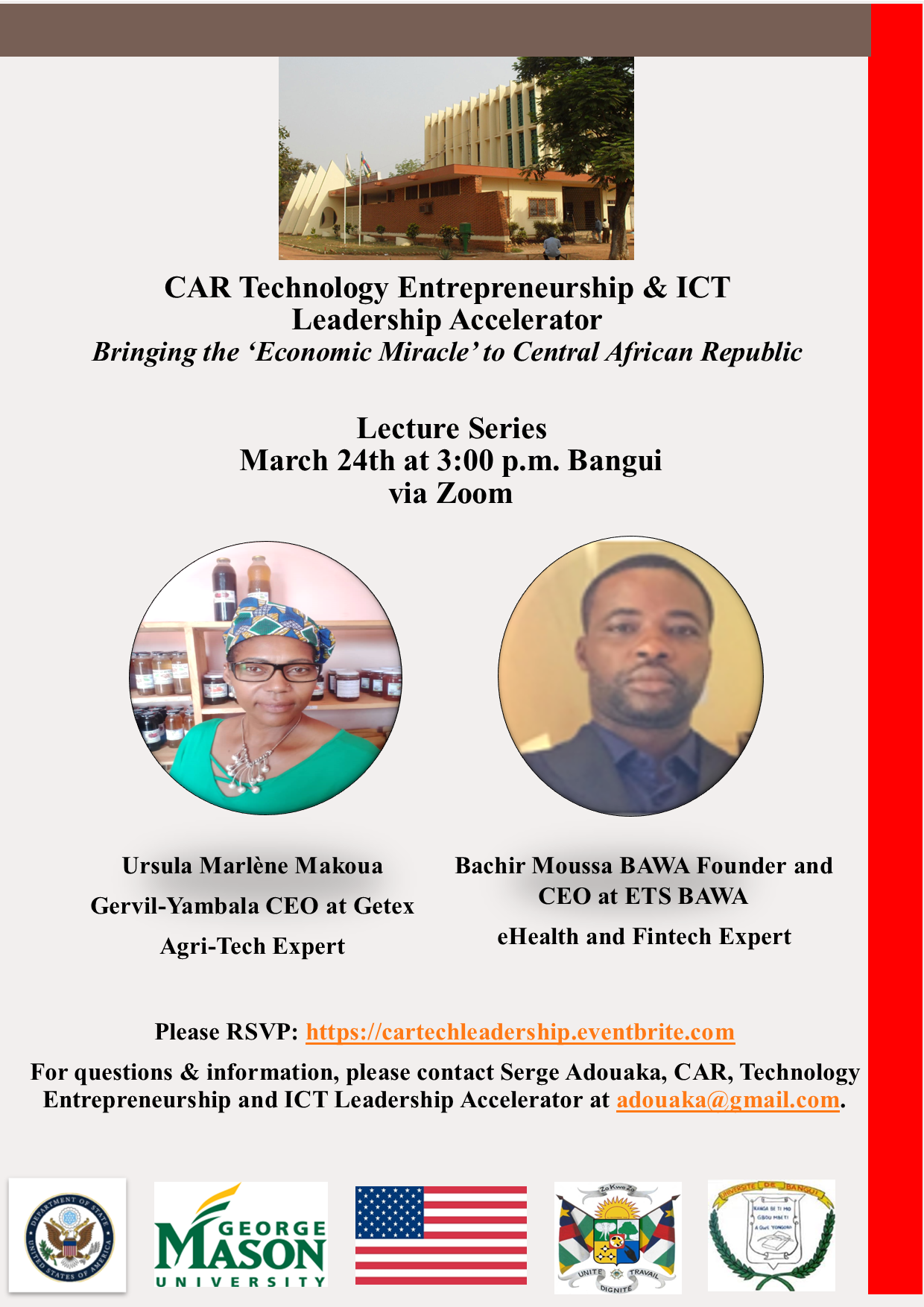
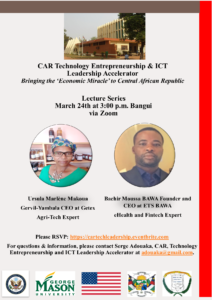
 esearch
esearch